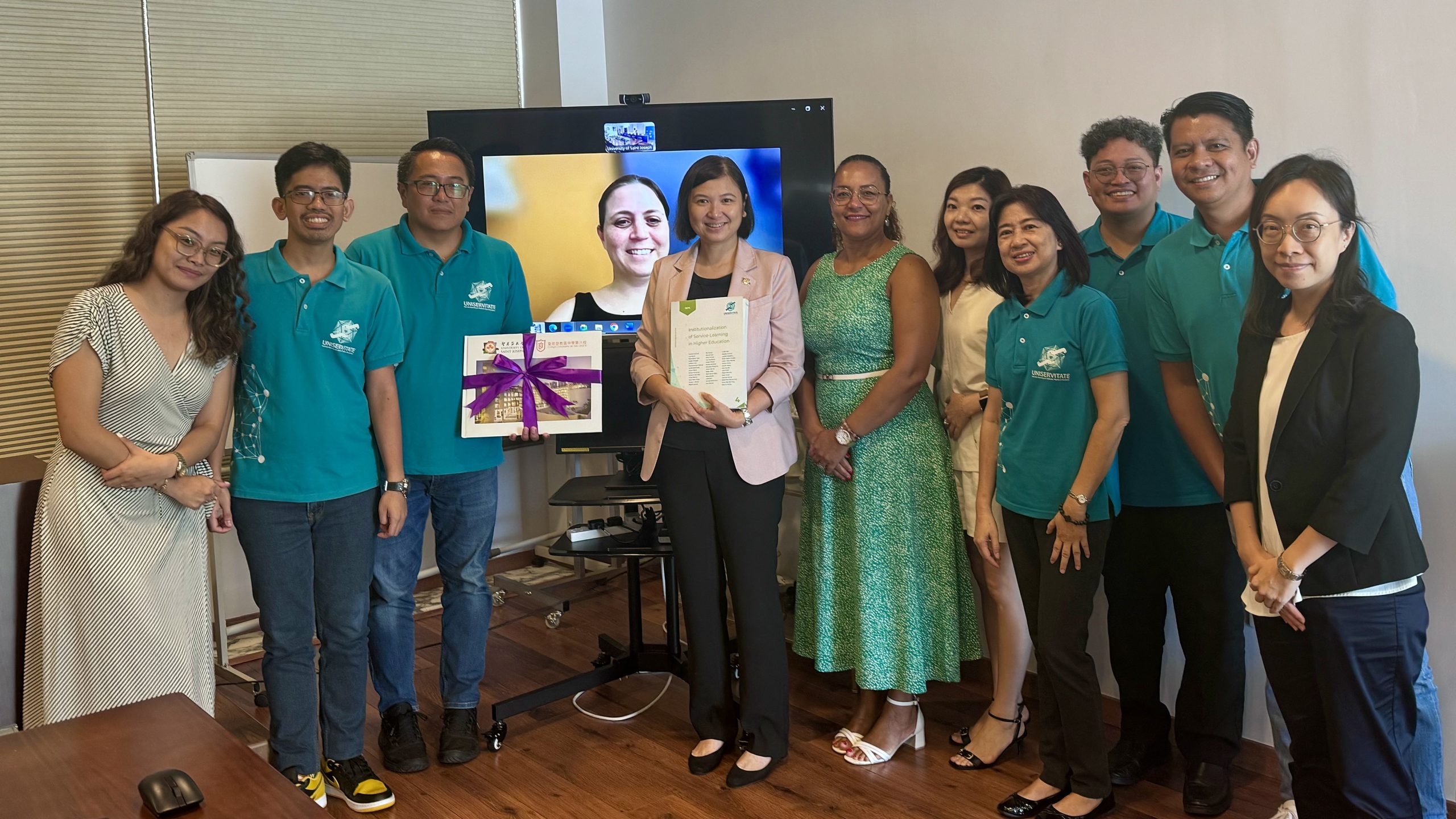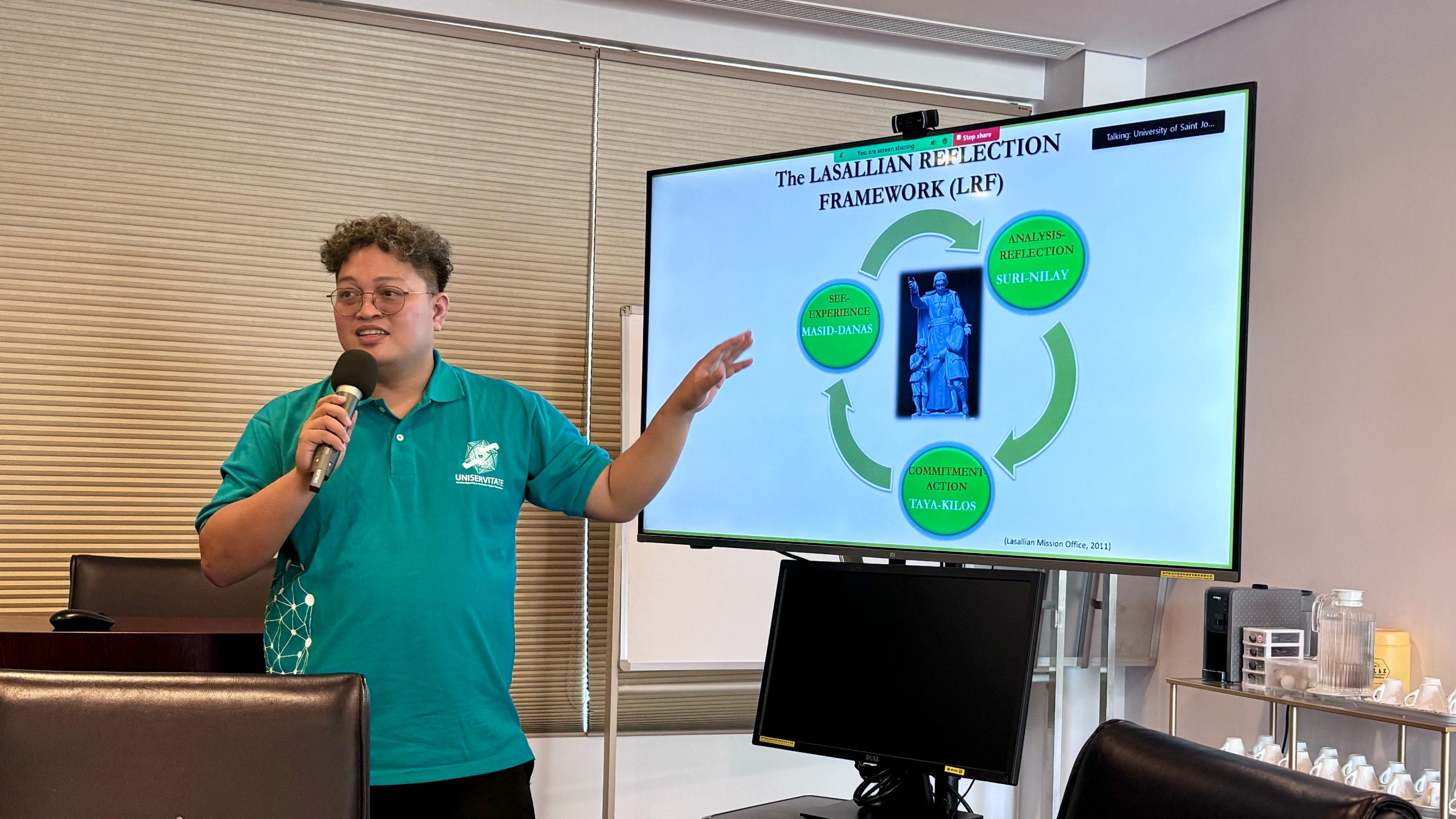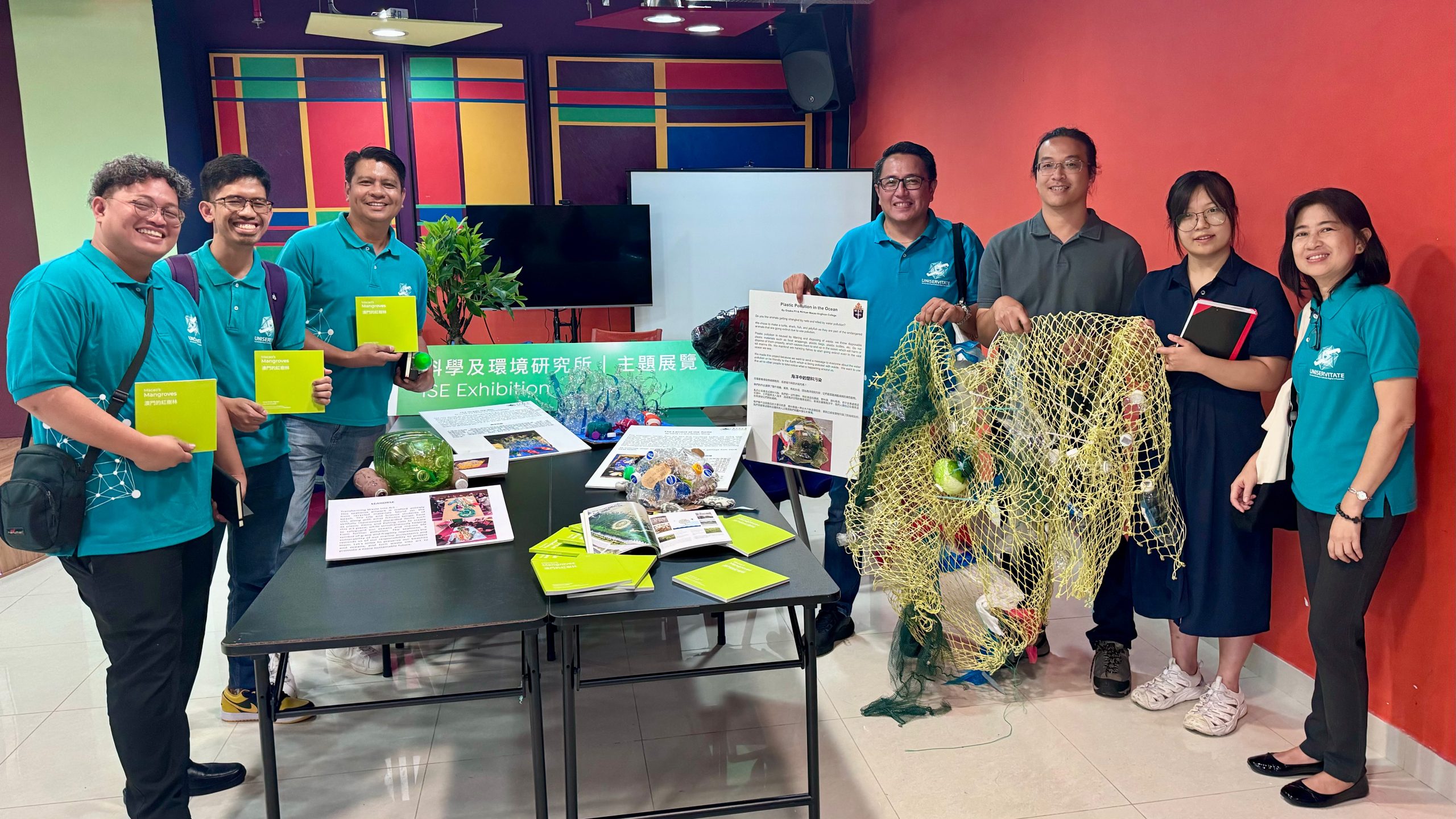USJ Benchmarking with UNISERVITATE Asia & Oceania Regional Hub on Service-Learning Initiatives

USJ Benchmarking with UNISERVITATE Asia & Oceania Regional Hub on Service-Learning Initiatives
09
Aug
09/08/2024
Representatives from the De La Salle University-UNISERVITATE Asia & Oceania Regional Hub (UA& ORH) visited USJ on 9th August, 2024.
Representatives from the De La Salle University – UNISERVITATE Asia & Oceania Regional Hub (UA& ORH) visited University of Saint Joseph (USJ) on 9th August, 2024, to conduct a benchmarking activity surrounding the Service-learning (SL) practices in place within the University’s academic and social engagement operations. USJ Vice-Rector for Student Affairs, Dr. Teresa Loong with representatives from the USJ faculties and supporting units warmly received the delegation to conduct the activity.
Attendees in the meeting include USJ Prof. Jacky Ho, Dean of the Faculty of Health Sciences, Prof. Iris Mak from the School of Education, Prof. Filipa Martins from the Faculty of Arts and Humanities and representing the USJ Green Committee, Prof. Alexandre Lebel from the Institute of Science and Environment, Ms. Jenny Lam, Head of the Office of Student and Alumni Affairs and Mrs. Ana Paula Mota, Manager of International Affairs; and from the UA&ORH, Coordinator Mr. Jimi Caldea, Asst. Coordinator Ms. Romina Eloisa Abuan and Mr. Karol Jim Louis Castillo, SL Program Specialist Ms. Marietta Guanzon, Mr. Peter Jayson Moredo and Mr. Niku Vicente.

Mr. Niku and Ms. Marietta shared a detailed presentation surrounding the frameworks and activities in place at the UNISERVITATE Regional Hub as well as at the Global level, with strong outreach efforts in recent years to welcome more Catholic HEIs internationally to join in the association’s mission. Prior to arriving at USJ, the delegation had completed benchmarking sessions with higher education institutions in Hong Kong. Prof. Jacky Ho emphasised the prime location of USJ’s Green Campus to be in close proximity to local NGOs and lower socio-economic members in need of community support, and hopes to continue fostering social engagement methods for the younger generation to be active citizens.

Prof. Iris Mak further elaborated on the activities USJ conducts with local primary and high schools, and expressed that while SL is yet to be a mandatory component of the USJ curriculum, our various connections and opportunities such as those through the Office of Student and Alumni Affairs will nurture the cultural competence of the students. Ms. Jenny Lam added that initiatives such as teaching English in lower-income countries and interactive workshops on supporting the visually-impaired, gender equality etc. allow for students to engage in volunteering activities of their interest, simultaneously guiding their professional development and ways to give back to society. Prof. Filipa Martins indicated that the SDGs are a key part of the USJ programmes given our focus on sustainability, and students throughout the year engage in plenty of social engagement activities spearheaded by the USJ Green Committee, such as the Coastal Cleanup, designing recycling infrastructure and research on the soundscapes of Macao and how it impacts the community.

In the USJ NAPE campus tour conducted by Prof. Alexandre Lebel and USJ graduate students, the UA&ORH delegation visited the facilities and saw ongoing research implemented by the Institute of Science and Environment, including the indoor plantation of mangroves, research on microplastics, climate awareness projects and invention of affordable technology to educate on sustainability and make it accessible to the general public.
Dr. Teresa Loong also echoed the alignment of the ASEACCU, where USJ currently serves as the Executive Secretariat, with the UNISERVITATE mission, and hopes to further the conservation with the delegation members in the upcoming ASEACCU Annual Conference on potential collaborations, and anticipates engaging in future UA&ORH events as part of our integral exchange with the regional community and partner institutions.
The UNISERVITATE programme is an initiative coordinated by the Centrolatino Americano de Aprendizaje y Servicio Solidario (CLAYSS) that seeks to generate a systemic change in Catholic Higher Education Institutions through the Institutionalisation of Service Learning as a tool to fulfill their mission of integral education and to generate agents for social change who critically engage for a better society according to the social teaching of the Church.










